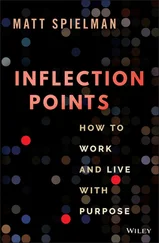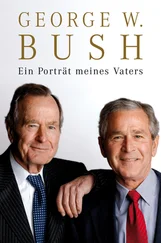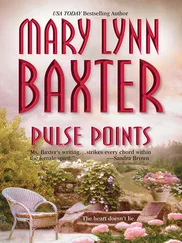The arrival of our troops did not quiet doubts at home. On October 25, Condi told me the slow pace of operations, which was producing a drumbeat of criticism in the media, was affecting the national security team. The war was only eighteen days old, but some were already talking about alternative strategies.
In times of uncertainty, any indication of doubt from the president ripples throughout the system. At a National Security Council meeting the next morning, I said, “I just want to make sure that all of us did agree on this plan, right?” I went around the table and asked every member of the team. They all agreed.
I assured the team that we had the right strategy. Our plan was well conceived. Our military was capable. Our cause was just. We shouldn’t give in to second-guessing or let the press panic us. “We’re going to stay confident and patient, cool and steady,” I said.
I could sense the relief in the room. The experience reminded me that even the most accomplished and powerful people sometimes need to be reassured. As I later told journalist Bob Woodward, the president has to be the “calcium in the backbone.”
I was glad we had stiffened our spines when I saw the New York Times on October 31. Reporter Johnny Apple had written an article headlined “A Military Quagmire Remembered: Afghanistan as Vietnam.” His opening sentence read, “Like an unwelcome specter from an unhappy past, the ominous word ‘quagmire’ has begun to haunt conversations among government officials and students of foreign policy, both here and abroad.”
In some ways, this was predictable. The reporters of my generation tend to see everything through the prism of Watergate or Vietnam. Still, I was amazed the Times couldn’t wait even a month to tag Afghanistan with the Vietnam label.
The differences between the two conflicts were striking. The enemy in Afghanistan had just murdered three thousand innocent people on American soil. At the time we had almost no conventional forces in Afghanistan, compared to the hundreds of thousands that had been in Vietnam. America was unified behind our troops and their mission. And we had a growing coalition at our side.
None of those distinctions mattered to the media. The debate about the so-called quagmire continued on the editorial pages and cable TV. I shrugged it off. I knew most Americans would be patient and supportive, so long as we delivered results.

In early November, results arrived. Supported by CIA officers and Special Forces, Northern Alliance generals moved toward Taliban positions. The Afghan warriors led the ground attacks, while our Special Forces used GPS units and laser guidance systems to direct airstrikes. Northern Alliance fighters and our Special Forces mounted a cavalry charge and liberated the strategic city of Mazar-i-Sharif. Residents poured into the streets in celebration. The most modern weaponry of the twenty-first century, combined with a horse charge reminiscent of the nineteenth century, had driven the Taliban from their northern stronghold.
I was relieved. While I had confidence in our strategy and dismissed the quagmire talk, I had felt some anxiety. There was no way to know for sure whether our approach would succeed. The fall of Mazar reassured me. “This thing might just unravel like a cheap suit,” I told Vladimir Putin.
It unraveled fast. Within days, almost every major city in the north fell. The Taliban fled Kabul for mountain hideouts in the east and south. Women came out of their homes. Children flew kites. Men shaved off their beards and danced in the streets. One man listened to music—banned under the Taliban—with a cassette player pressed to his ear. “We are free!” he shouted. A woman teacher said, “I’m happy because I believe now the doors of the school will be open for girls.”
I was overjoyed by the scenes of liberation. So was Laura. The Saturday after Kabul fell, she delivered the weekly radio address, the first time a First Lady had ever done so. The Taliban regime, she said, “is now in retreat across much of the country, and the people of Afghanistan—especially women—are rejoicing. Afghan women know, through hard experience, what the rest of the world is discovering. … The fight against terrorism is also a fight for the rights and dignity of women.”
Laura’s address prompted positive responses from around the world. The most meaningful came from Afghan women. Expanding opportunity in Afghanistan, especially for women and girls, became a calling for Laura. In the years to come, she met with Afghan teachers and entrepreneurs, facilitated the delivery of textbooks and medicine, supported a new U.S.-Afghan Women’s Council that mobilized more than $70 million in private development funds, and made three trips to the country. Just as I was feeling more comfortable as commander in chief, she was gaining her footing as First Lady.

With northern Afghanistan liberated, our attention turned to the south. George Tenet reported that an anti-Taliban movement was coalescing around a Pashtun leader, Hamid Karzai. Karzai was not a typical military commander. He grew up near Kandahar, earned a college degree in India, spoke four languages, and served in the Afghan government before it was taken over by the Taliban.
Two days after our bombing campaign began, Karzai hopped on a motorcycle in Pakistan, crossed the border, and rallied several hundred men to take Tarin Kot, a small city near Kandahar. The Taliban discovered Karzai’s presence and sent troops to kill him. With his position about to be overrun, the CIA dispatched a helicopter to pick him up. After a brief period, Karzai returned to lead the resistance. He was joined in late November by a contingent of Marines. The remaining Taliban officials fled Kandahar. The city fell on December 7, 2001, the sixtieth anniversary of Pearl Harbor, two months to the day after my speech in the Treaty Room.

Driven out of their strongholds, the remnants of the Taliban and al Qaeda fled to Afghanistan’s rugged eastern border with Pakistan. In early 2002, Tommy Franks mounted a major assault called Operation Anaconda. Our troops, joined by coalition partners and Afghan forces, squeezed out the remaining al Qaeda and Taliban fighters in eastern Afghanistan. CIA officers and Special Forces crawled through the caves, calling in airstrikes on terrorist hideouts and putting a serious dent in al Qaeda’s army.
I hoped I would get a call with the news that Osama bin Laden was among the dead or captured. We were searching for him constantly and received frequent but conflicting information on his whereabouts. Some reports placed him in Jalalabad. Others had him in Peshawar, or at a lake near Kandahar, or at the Tora Bora cave complex. Our troops pursued every lead. Several times we thought we might have nailed him. But the intelligence never panned out.
Years later, critics charged that we allowed bin Laden to slip the noose at Tora Bora. I sure didn’t see it that way. I asked our commanders and CIA officials about bin Laden frequently. They were working around the clock to locate him, and they assured me they had the troop levels and resources they needed. If we had ever known for sure where he was, we would have moved heaven and earth to bring him to justice.
Operation Anaconda marked the end of the opening phase of the battle. Like any war, our campaign in Afghanistan had not gone perfectly. But in six months, we had removed the Taliban from power, destroyed the al Qaeda training camps, liberated more than twenty-six million people from unspeakable brutality, allowed Afghan girls to return to school, and laid the foundation for a democratic society to emerge. There had been no famine, no outbreak of civil war, no collapse of the government in Pakistan, no global uprising by Muslims, and no retaliatory attack on our homeland.
Читать дальше












